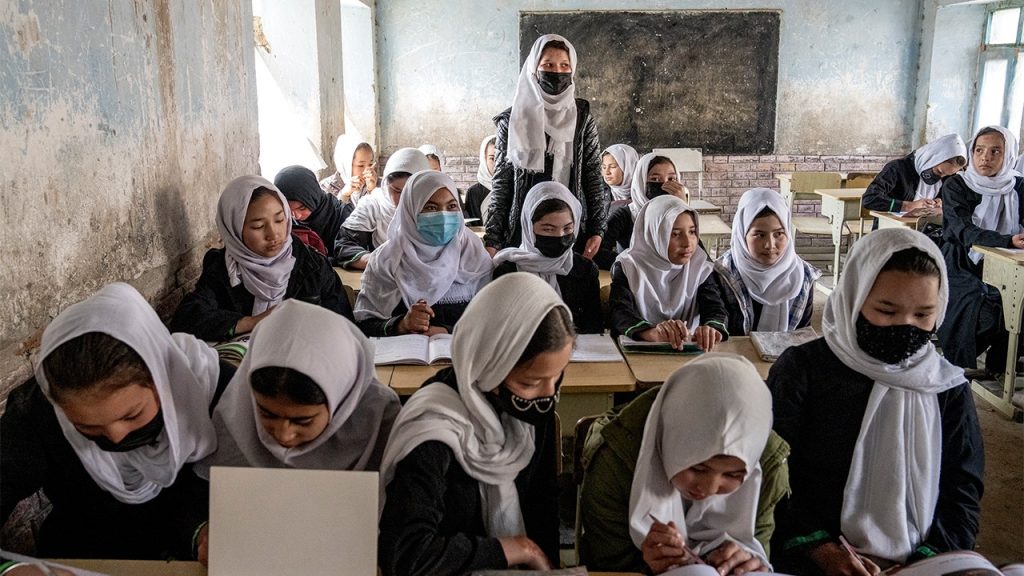The United Nations Children’s Agency, UNICEF, recently reported that it has been a thousand days since girls in Afghanistan were banned from attending secondary schools. This decision has affected over 1 million girls in the country. UNICEF’s Executive Director, Catherine Russell, has called on Taliban authorities to allow all children to resume learning immediately, emphasizing the importance of education for girls. The U.N. has expressed concerns that the ban on girls’ education is hindering the Taliban’s recognition as the legitimate rulers of Afghanistan.
Since taking control of Afghanistan following the withdrawal of U.S. and NATO forces in 2021, the Taliban has imposed strict restrictions on women and girls. They have prohibited female education beyond the sixth grade, making Afghanistan the only country in the world with such limitations. The Taliban’s interpretation of Islamic law is cited as the reason behind these restrictions. Additionally, women have been barred from higher education, public spaces, and most jobs, causing widespread concern among human rights organizations.
UNICEF has criticized the Taliban’s actions as a violation of girls’ right to education, leading to limited opportunities and poor mental health among them. Despite the challenges, UNICEF is working with partners to provide community-based education classes for 600,000 children, two-thirds of whom are girls. The organization is also involved in training teachers to ensure that children, especially girls, have access to basic education in Afghanistan.
In a report published in December, Human Rights Watch highlighted the negative impact of the Taliban’s discriminatory educational policies on boys as well. The departure of qualified teachers, including women, has resulted in increased corporal punishment in schools. It has been reported that female civil servants barred from working by the Taliban have also been informed that their salaries will be reduced to the lowest level, regardless of their experience or qualifications. These decisions have further exacerbated the erosion of human rights in Afghanistan.
The U.N. High Commissioner for Human Rights, Volker Türk, has urged the authorities in Afghanistan to repeal all laws and measures that discriminate against women and girls. The U.N. Human Rights Office spokesperson, Liz Throssell, condemned the Taliban’s recent decisions as discriminatory and arbitrary, calling for immediate action to protect the rights of women and girls in the country. Despite these calls for action, no comments were immediately available from the Taliban regarding the ongoing situation in Afghanistan.













